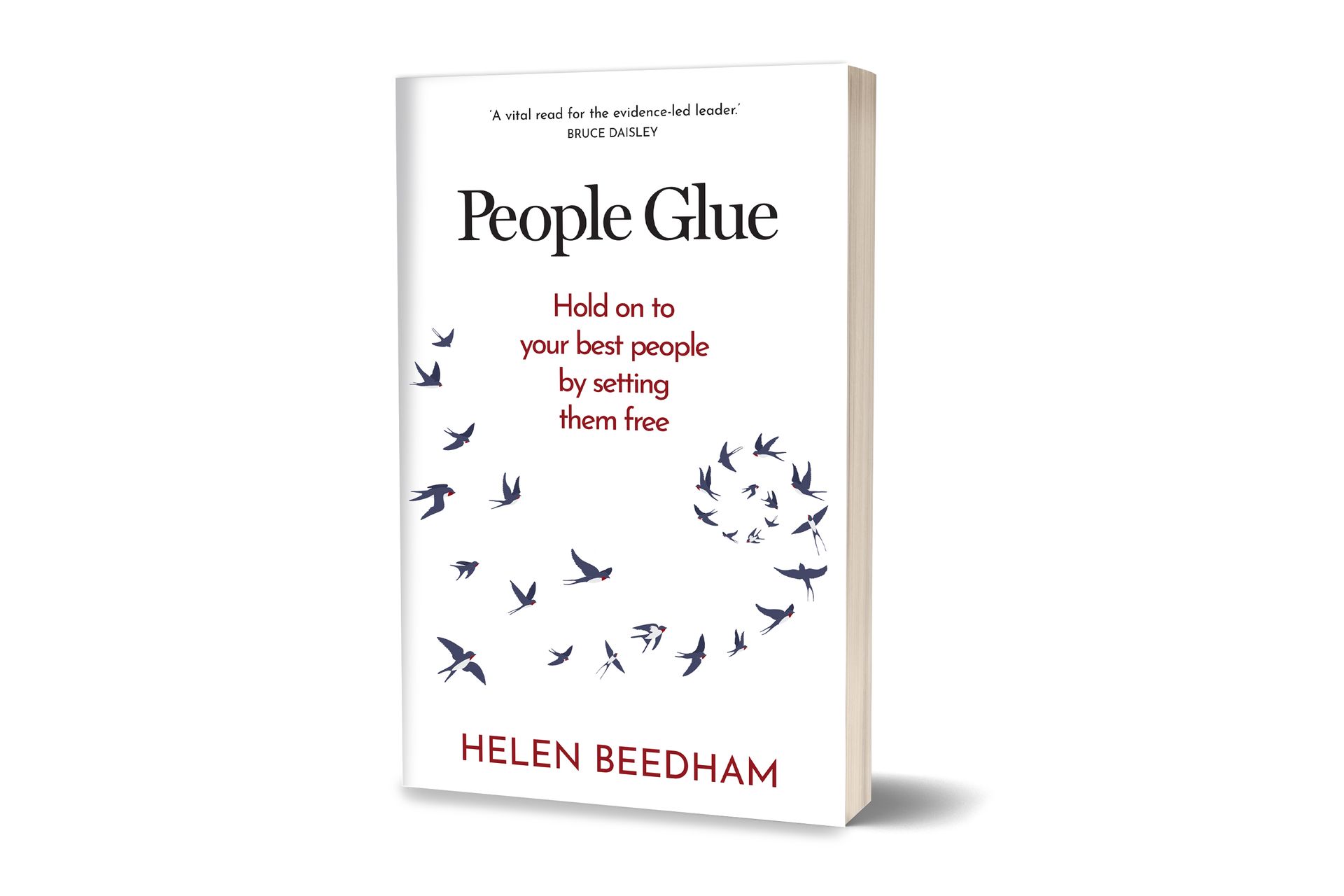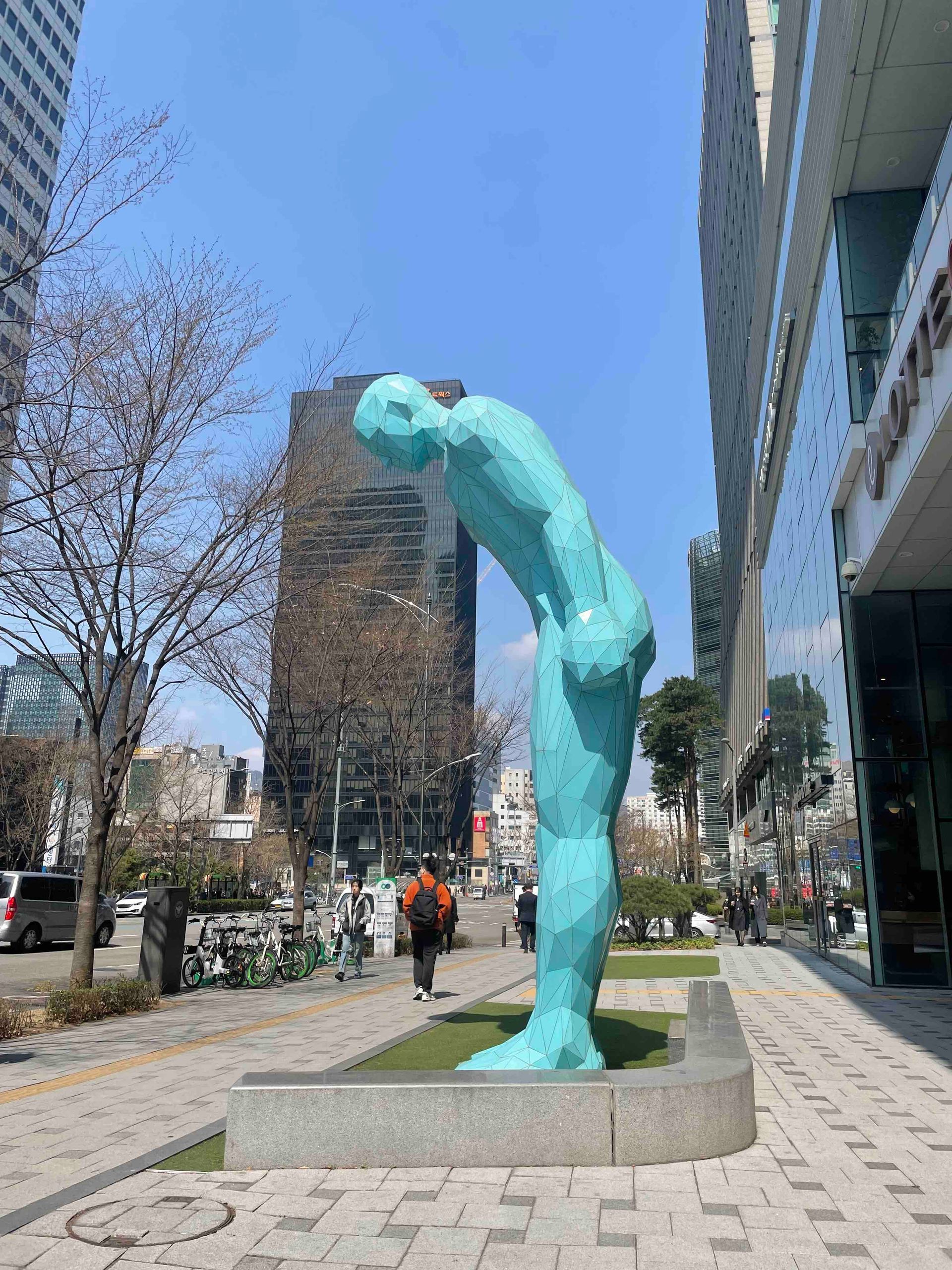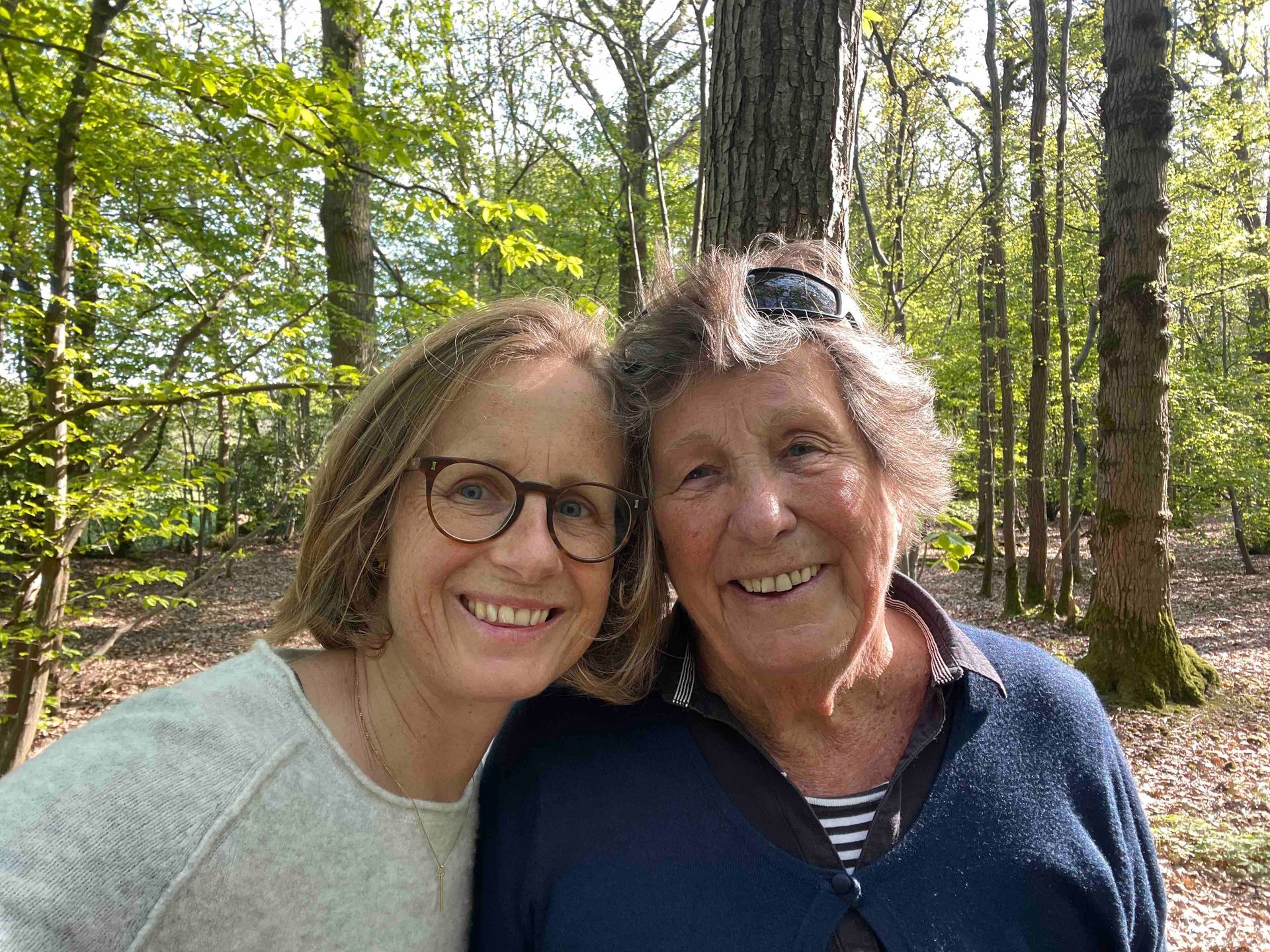Biting the bullet
7 December 2022
Why we procrastinate and how to overcome this.
Why do we find it hard to get round to doing certain tasks or deadlines? Procrastination doesn’t just afflict some unlucky people people and leave others blissfully unscathed – even the most efficient, organised people delay doing certain things until the consequences become impossible to ignore. Here are six reflections, drawn from neuroscience, behavioural science and motivation theory, about our tendency to avoid getting on with the job and some tips to help us knuckle down more successfully.
1. Know your brain.
To speed up its processing power and apply learning from one task to another, our brains rely on shortcuts, known as heuristics, and biases. The optimism bias, for example, leads us to be over-optimistic when we are forecasting and planning, with the result that we typically underestimate and underscope activities. One simple way to counter this bias is to double your time estimate when planning your work (and enjoy the free time if you finish early).
We also tend to think of time as elastic rather than finite, and behavioural science research shows we value our time today more than our time tomorrow. So we’re more reluctant to commit to doing something today and more relaxed about saying yes to committing our time tomorrow. Consequently we often put tasks off until ‘later’ … and often end up with an unrealistic load when tomorrow does swing around.
Ignoring tasks actually costs us mental energy and depletes the finite amount of willpower we wake up with each morning. Every time you spot the task on your to-do list or around your house, your brain thinks about it, weighs up the pros and cons of doing it now vs later, and makes a decision. Multiply that by several times during a day and you’re consuming valuable brain effort and time. It’s more cognitively efficient to tackle the less palatable or harder tasks first, known as ‘eating the frog’, which has the added benefit of helping you feel less weighed down and more productive for the rest of the day.
2. Uncover the emotion.
When someone is struggling with procrastination, I ask them what emotion they are feeling about the task or decision they are putting off. Resentment? Boredom? Frustration? Lack of confidence? It can be hard to pin this down because we may not be paying much (or any) attention to the underlying emotion, but keep exploring this until the answer emerges.
Identifying the emotion can give us some clues about what’s really going on and shed some light on why we’re procastinating. With this clearer view, from here we can decide whether we want to do anything about it and if so, what the possible courses of action might be.
3. Spot your motivation.
In the theory of self-determination researched and developed by Deci and Ryan (see their figure 1) different types of motivation lie along a continuum which stretches from amotivation, where we are just going through the motions, to extrinsic motivation, where we are responding to an external demand or reward, and on to intrinsic motivation, where our motivation comes from within us.
Some good questions to ask ourselves, or others we may be coaching or managing, are: ‘do you have to do this or are you choosing to do it?’ ‘what does completing this task/decision mean to you? And to others?’ or ‘how important is this task/decision to you personally and why?’.
4. Get constructively critical.
When we’re reluctant to get on with a task or decision, sometimes this is to do with rational factors at play, rather than emotional ones. For example, the purpose or process relating to this task isn’t clear or the timing is poorly planned. Standing back and looking critically at the objective, deadline, resourcing and any interconnected tasks or decisions can help you to identify ambiguities or inefficiencies that no-one else is paying attention to.
By asking ‘what outcome are we trying to achieve?’, ‘am I the right person to do this work?’, and ‘what’s really driving the timescales?, you can uncover any hidden assumptions and agree on ways to simplify, delegate or – joy! - even eliminate the task.
5. Assess the environment.
Sometimes it’s the landscape around us that presents us with barriers to getting on with the job - these barriers can be physical, virtual or people-related. Physical barriers may be visual or aural distractions that prevent us from concentrating on the task or lacking the right tools for the job; likewise virtual barriers may be connectivity issues, digital distractions or clunky interfaces and user experiences. People-related barriers might include lack of access at the necessary time to the people you need to collaborate with or involve in decisions.
With barriers it can help to map out or write down everything you need to accomplish this task successfully, looking at it from all angles, then tackle each barrier in turn (or look for an alternative approach if you can’t). This works just as well if you’re trying to get a small child (or a teenager) out of the house on time in the morning, as parenting expert Anita Cleare once advised me – map the route through the house to the door, get your child to line up everything they need to take with them and move all potential distractions out of the way or out of sight.
6. Tweak your habit(s).
Once you’ve identified where you tend to procastinate and why, you can start to work on your own behaviours. We rely heavily on habits, consciously and unconsciously, to manage our day and our work: habits are typically comprised of a cue or trigger, then the activity or routine, followed by the reward. By looking closely at the cue, we can identify ways to change the activity or routine so that we’re more likely to get it done in good time. For example, if you always end up sorting and submitting your expense receipts at the last possible moment, then rather than using the submission deadline as the cue, make your new cue the moment when you incur the expense, so you build a new habit and mental association around doing the two things (purchasing and filing) in quick succession.
Notice too the reward that each habit results in: what’s the pay-off to you when you complete the task/take the decision? How does it make you feel? Here’s a reward-based example: I’ve been reading a book a week during 2022 and have realised that when I take 15-20 minutes to read during the day, I feel more refreshed physically and mentally and remember the content more (my ‘reward’) compared to when I leave all the reading until bedtime (when I invariably fall asleep after one page and forget what I've read).
If you’ve got a regular reflective practice going already, then use one of those reflective sessions to consider these questions more comprehensively. If you don’t and you’re looking for some speedy answers, you don’t need to work through all six reflections above every time you’re procrastinating; you’ll probably have a immediate sense of which one(s) might be most useful to you to focus on. Or share the list with a colleague, direct report or your team and find out what insights flash for them – a quick chat about this can often shed light on our procrastination problem too. Good luck, let me know what works for you and if you want more personalised support then join my group coaching programme or ask me about my 1:1 coaching packages. A last word of advice: if procrastination is really holding you back right now, don’t make a mental note to come back to this at some unspecified time. Tackle it today.
1. Know your brain.
To speed up its processing power and apply learning from one task to another, our brains rely on shortcuts, known as heuristics, and biases. The optimism bias, for example, leads us to be over-optimistic when we are forecasting and planning, with the result that we typically underestimate and underscope activities. One simple way to counter this bias is to double your time estimate when planning your work (and enjoy the free time if you finish early).
We also tend to think of time as elastic rather than finite, and behavioural science research shows we value our time today more than our time tomorrow. So we’re more reluctant to commit to doing something today and more relaxed about saying yes to committing our time tomorrow. Consequently we often put tasks off until ‘later’ … and often end up with an unrealistic load when tomorrow does swing around.
Ignoring tasks actually costs us mental energy and depletes the finite amount of willpower we wake up with each morning. Every time you spot the task on your to-do list or around your house, your brain thinks about it, weighs up the pros and cons of doing it now vs later, and makes a decision. Multiply that by several times during a day and you’re consuming valuable brain effort and time. It’s more cognitively efficient to tackle the less palatable or harder tasks first, known as ‘eating the frog’, which has the added benefit of helping you feel less weighed down and more productive for the rest of the day.
2. Uncover the emotion.
When someone is struggling with procrastination, I ask them what emotion they are feeling about the task or decision they are putting off. Resentment? Boredom? Frustration? Lack of confidence? It can be hard to pin this down because we may not be paying much (or any) attention to the underlying emotion, but keep exploring this until the answer emerges.
Identifying the emotion can give us some clues about what’s really going on and shed some light on why we’re procastinating. With this clearer view, from here we can decide whether we want to do anything about it and if so, what the possible courses of action might be.
3. Spot your motivation.
In the theory of self-determination researched and developed by Deci and Ryan (see their figure 1) different types of motivation lie along a continuum which stretches from amotivation, where we are just going through the motions, to extrinsic motivation, where we are responding to an external demand or reward, and on to intrinsic motivation, where our motivation comes from within us.
Some good questions to ask ourselves, or others we may be coaching or managing, are: ‘do you have to do this or are you choosing to do it?’ ‘what does completing this task/decision mean to you? And to others?’ or ‘how important is this task/decision to you personally and why?’.
4. Get constructively critical.
When we’re reluctant to get on with a task or decision, sometimes this is to do with rational factors at play, rather than emotional ones. For example, the purpose or process relating to this task isn’t clear or the timing is poorly planned. Standing back and looking critically at the objective, deadline, resourcing and any interconnected tasks or decisions can help you to identify ambiguities or inefficiencies that no-one else is paying attention to.
By asking ‘what outcome are we trying to achieve?’, ‘am I the right person to do this work?’, and ‘what’s really driving the timescales?, you can uncover any hidden assumptions and agree on ways to simplify, delegate or – joy! - even eliminate the task.
5. Assess the environment.
Sometimes it’s the landscape around us that presents us with barriers to getting on with the job - these barriers can be physical, virtual or people-related. Physical barriers may be visual or aural distractions that prevent us from concentrating on the task or lacking the right tools for the job; likewise virtual barriers may be connectivity issues, digital distractions or clunky interfaces and user experiences. People-related barriers might include lack of access at the necessary time to the people you need to collaborate with or involve in decisions.
With barriers it can help to map out or write down everything you need to accomplish this task successfully, looking at it from all angles, then tackle each barrier in turn (or look for an alternative approach if you can’t). This works just as well if you’re trying to get a small child (or a teenager) out of the house on time in the morning, as parenting expert Anita Cleare once advised me – map the route through the house to the door, get your child to line up everything they need to take with them and move all potential distractions out of the way or out of sight.
6. Tweak your habit(s).
Once you’ve identified where you tend to procastinate and why, you can start to work on your own behaviours. We rely heavily on habits, consciously and unconsciously, to manage our day and our work: habits are typically comprised of a cue or trigger, then the activity or routine, followed by the reward. By looking closely at the cue, we can identify ways to change the activity or routine so that we’re more likely to get it done in good time. For example, if you always end up sorting and submitting your expense receipts at the last possible moment, then rather than using the submission deadline as the cue, make your new cue the moment when you incur the expense, so you build a new habit and mental association around doing the two things (purchasing and filing) in quick succession.
Notice too the reward that each habit results in: what’s the pay-off to you when you complete the task/take the decision? How does it make you feel? Here’s a reward-based example: I’ve been reading a book a week during 2022 and have realised that when I take 15-20 minutes to read during the day, I feel more refreshed physically and mentally and remember the content more (my ‘reward’) compared to when I leave all the reading until bedtime (when I invariably fall asleep after one page and forget what I've read).
If you’ve got a regular reflective practice going already, then use one of those reflective sessions to consider these questions more comprehensively. If you don’t and you’re looking for some speedy answers, you don’t need to work through all six reflections above every time you’re procrastinating; you’ll probably have a immediate sense of which one(s) might be most useful to you to focus on. Or share the list with a colleague, direct report or your team and find out what insights flash for them – a quick chat about this can often shed light on our procrastination problem too. Good luck, let me know what works for you and if you want more personalised support then join my group coaching programme or ask me about my 1:1 coaching packages. A last word of advice: if procrastination is really holding you back right now, don’t make a mental note to come back to this at some unspecified time. Tackle it today.
Enjoyed reading this? Share it with others
Recent blogs

Have you ever worked on a slow-burn project that took 2 years (or more) to come to fruition? I’m fast approaching one of those ‘fruition’ moments. Yet it feels like yesterday that I was telling you about my seed of an idea.... My second business book People Glue: hold on to your best people by setting them free launches on Monday 26th January (e-book) and Tuesday 27th January (paperback & hardback). I’d love your help to create momentum around the launch and celebrate with me.

How far ahead do you typically think ? ‘Festive creep’ is a thing apparently, with the festive decorations, shopfronts and marketing campaigns officially starting earlier than ever before. (I ate my first mince pie on the last day of November – have I fallen prey too?). This seems to me to be another indication of how impatient and hurried we have become, always in a rush for the next arrival, to start the next new initiative at work or hit the next deadline, and in parallel our attention has become chopped up into ever-smaller increments in our rush to acquire, achieve and advance. I’m pondering how we can counterbalance our short-term, hyper-fast focus with a slowing down to help us take more in, look further ahead and expand our thinking. I’m as guilty of myopic busyness as anyone. My second business book People Glue launches on 26/27 January (quick plug: pre-order your paperback/hardback here or you can snap up the e-book for just 99p on the 26th January, add a reminder to your calendar here ) and we’re shortly heading off on a long-haul family adventure over the festive period. So I’m currently running several ‘to do’ lists concurrently, all intended very ambitiously to ‘get everything done’ by the time school’s out. I can’t see past the forest of work tasks, home admin, festive gift-buying and packing reminders that clog my view. With our departure date looming, I need to step back and look further ahead, or as the French say, ‘reculer pour mieux avancer’. My exasperated husband put it more bluntly, ‘yes we need to unblock the kitchen drain for the housesitters but a new rug for the sitting-room is NOT a priority!’ When I was researching for People Glue , I spoke to 25 or so CEOs, COOs and CPOs , many of whom talked about looking at their business through 2 lenses: one eye on daily operations and short-term results, the other on longer-term ‘moonshots’ that anticipated potential future developments and built organisational capability for tomorrow. Each lens brought insights and a counterbalancing view to the other. Individuals generally want the same in their lives too; to manage, on the one hand, the day-to-day load (at work and home) as efficiently and productively as possible whilst planning their next pay rise, promotion, job move, house refurbishment, holiday or family addition. They’re also zooming out to think about what matters most to them today and how this might evolve in the future. Even those who take a fairly spontaneous approach to their career opportunities hold firm to a set of longer-term beliefs and values that form a career compass guiding their decisions - listen to my podcast conversation with tech CEO Soulaima Gourani to hear how she does this brilliantly. I was fascinated to read at the weekend about the creation of a Clock of the Long Now (FT £, or here ), designed to measure the passing of 10,000 years. Located deep in a remote Texan mountain, it will confound our expectations of a clock by ticking once a year, chiming once a century and trumpeting a cuckoo once a millenium. All without winding and parts replacements. The same day, I listened to author and computer science professor Cal Newport talk about the lost art of long thinking on his podcast. He defines long thinking as ‘the persistent intentional application of your brain when you’re trying to create something new’ and points out how sustained attention is critical for long thinking. But thanks to smartphones, instant gratification and short-form ultra-digestible entertainment, we’ve lost the habit of thinking for ourselves and spend less time reading longer texts, reflecting, and writing as form of thinking. The renowned psychologist Daniel Kahneman shed light on our 2 speeds of thinking in his remarkable book Thinking Fast and Slow . We slip comfortably into fast thinking thanks to our cognitive biases and shortcuts, entrenched assumptions and easily-recalled (but incomplete or unreliable) data. It’s more effortful to engage in slow thinking – like writing with your non-dominant hand - because the latter requires sustained attention, the search for alternative perspectives and an exploration of the unfamiliar. I have a thirst for books, reading, bookshops and libraries that I’m belatedly learning is a powerful antidote to the short-term busyness and task accomplishment that I’ve become so used (addicted?) to. I’m curious to know what value business leaders place on reading, and learning, generally in their organisations, and asked a friend who’s running a 7,000 employee consulting business whether she thought corporate libraries were worth investing in. Her answer was revealing: her initial reaction was ‘not a priority’ but she swiftly followed that up with ‘but I would love to encourage people to switch off from the immediacy of work and find more time in their day/week to read/learn/reflect, engage in curiosity and expand their thinking horizons. I absolutely want to make this part of the way we work here’. If this strikes a chord, if you’ve established a corporate library or another mechanism e.g. a book club, reading circles etc, to grow people’s reading and thinking habits at work, then please do get in touch , and I’ll share my thoughts on this too. Here's how I’m trying to adjust the balance of my thinking time and extend my thinking horizons: 1. 10 minutes a day ‘still time’ – sitting quietly, doing nothing, to get used to the discomfort of switching to a slower pace. My brain twitches like mad for most of it but my mental hamster wheel does start to ease into a slower, more contemplative state. 2. Prioritising ‘reading windows’ for 20-30 minutes a day over other things I could do in that time . Phone down, jobs ignored, interruptions discouraged. I turn to my subscriptions - the FT, The Economist, Harvard Business Review and Sloan MIT Review – and have a browse. In the evenings I turn to fiction, often a Korean novel (translated) of late. 3. When drafting or planning, I’m reverting to ink pen and paper . I’m a fast touch-typist and writing out my thoughts by hand is more effortful, forcing me to think more carefully. My phone goes in Focus mode to silence notifications, and out of sight. What works for you? Or what thinking habit do you want to introduce? I’d love to hear what you’re reading at the moment or what you’re stacking up to read over the festive period and I’ll include a little book list in my New Year’s email. In the meantime, embrace the festivities your way and if that means ditching your to-do list in favour of some quality thinking, reading and reflecting time (mince pie or Celebration choc in hand), then go for it. Let’s make ‘thinking creep’ a thing instead.

How do you react when the going gets tough? We’ve been talking a lot about resilience at home. It’s a much-thrown-about concept I know, but I’m genuinely curious about how to really be resilient when the path you’re on feels anything but easy. Between anxiety-inducing news headlines, a tough job hunt for my stepson, my daughter finding school challenging, and clients navigating big transitions, 2025 has felt bumpy. The world of work is turbulent, with layoffs happening in multiple industries and budget cuts in others. GenAI adoption is shrinking early-career jobs, while over-55s are anxious about the future. Leaders and managers are grappling with the diverse needs of multigenerational, hybrid teams. I’ve been reflecting on how we ride out these bumps without feeling battered. Resilience isn’t something we magically have or lack - it grows as we show up consistently to adversity. Here are 3 resilience-building ideas. First, try reframing things. Reframing doesn’t fix a tough situation overnight, but it brings the energy to keep going. I love how my recent podcast guest, Soulaima Gourani, a globally recognized tech founder and World Economic Forum Young Global Leader, handles setbacks: ‘I don't look at my problems as problems, I look at them as projects. I’m just manipulating myself to think of life as a human experience. Even setbacks are an incredible opportunity to grow. I have a setback probably daily; I get used to it! When I call my girlfriends and we have a good laugh, I often share what went wrong that day. It just takes the spiciness out of it.’ You can hear more about being fearless in life and work in our conversation here . Second, focus on what we can influence. Stephen Covey’s framework in The 7 Habits of Highly Effective People describes a large ‘circle of concern’ within which sits a smaller ‘circle of influence’ (picture a donut). We waste energy worrying about things we can’t control; we build our resilience by putting our time and energy into those challenges which we do have some influence over. At work, that may mean: • Reflecting on what gives your work meaning. I discussed this with Professor Ying Zhou here . • Talking to your boss about reshaping your role, temporarily or long-term. My chat with Beth Stallwood about shaping better working lives may help. • Spotting new opportunities as stepping stones to a better work experience. • Building your skills to create more options for the future. At home, it’s about: • Accessing a coach or specialist advice if needed. • Focusing on eating, sleeping, and exercising consistently. • Finding pockets of time - however small - for things that recharge you. For me, that’s having a great book at hand to help me switch off, learning Korean for a few minutes a day, a coffee or a call with a friend, and the occasional spa treatment. Third, focus on the team. Resilience resides within teams . We can’t change everything alone, so talk about challenges and lean on your team (however you define ‘team’ at work and at home) for support. Workplace team resilience doesn’t demand a big ambitious programme, expensive external support or a flashy new employee benefit. Some powerful, low-cost habits make all the difference: • Having timely, quality conversations. • Setting up check-ins, building social bonds. • Making it easy for people to make reasonable requests. • Giving people chances to develop resilience through experience. Skilled managers are key - emotionally intelligent, with coaching and facilitation expertise. Find more ideas in my LinkedIn post or take a look at my outline for a new manager development programme here and please do get in touch if you want to chat about this, I’d welcome your input. And at home? Try: • Adjusting how you share the daily load. • Carving out lighthearted family time with no talk of challenges. • Sharing both your wins and stumbles of the week. • Asking, ‘how are you doing today on a scale of 1–10?’ (where 1 is ‘finding today very hard’ and 10 is ‘feeling at my brightest’). What helps you and your team at work or home? If things have been feeling bumpy for you too, I hope you can find your way onto a smoother path soon and please get in touch if I can listen or help.

How often do you get the luxury of extended, undisturbed time? Is there a quiet space or magical place you retreat to? I’m writing this in a silent house, up early before the rest of the family. All I can hear is the scratching of my ink pen on the paper and the cooing and chirruping of garden birds outside my window. No voices, machines, traffic, notifications or interruptions. I can hear myself think, there’s no-one calling for my attention and the jobs can wait. But at any minute, this brief lull will crumble. It's hard to get extended, undisturbed time. Many of us are spending less time in our home offices now more organisations have encouraged – or mandated – more in-office working. The majority of people still work a structured hybrid patterns, but likely 1-2 days per week at most at home. Not that home-working is typically quieter – diaries are still largely stuff with calls, messaging channels ping continously and the home distractions of pets demanding attention, chatty home-working partners, texts from teenagers at school or – my pet peeve – couriers knocking on the door, dropping the parcel outside and driving straight off while I’m halfway down the stairs thinking I’m needed. Our focus time is bounded by each interruption or intrusion into our attention. Some people I know say they need background noise to help them concentrate. At least 2 CEO’s I’ve spoken to prefer doing calls and emails in cafés and their office’s buzzy atrium where the constant hum of voices and hissing and thumping of coffee macines provide a cloack of anonymity around even sensitive conversations. Whatever your preference environment-wise, it turns out that noisy ones are actually damaging to our health; anything above the maximum recommended noise level of 53 decibels is described as a ‘ silent killer ’. A quiet library falls under this, your average office above it. Quiet time isn’t just about the decibel level, it’s also about freedom from distraction and interruptions. As I was telling over 200 sixth-form students at an Enterprise and Innovation conference a week ago, our brains prefer to focus on one task at a time and maintain an extended attention set – to get into ‘flow’, in other words. In terms of cognitive functioning, that’s when we are at peak performance. Every time our attention is tugged away from the task at hand, research has shown that it takes us over 2 seconds to reorient back to the task at hand. Known as the toggling tax, this happens on average up to 1,200 times per day, costing us 4 hours a week or 5 full weeks per year of lost attention, wasted time and reduced productivity. Ouch. So there’s a strong case for designing work environments that allow people to concentrate in quiet spaces and office design today is increasingly factoring this in. Co-working hubs and corporate offices now offer quiet zones where calls and conversations are not permitted; individual work spaces that look like padded, high-wall cubicles block out the rustling or key board tapping of workers either side; and individual sound-proofed call booths that keep noise leakage to a minimum. I’ve learnt the hard way to be more selfish with my quiet time when I’m writing, silencing notifications on my phone, putting noise cancelling headphones on and shutting the door to our companionable, aka needy, cat (and my companionable but not needy husband). I’ve been reminded this week of the power of quiet time and a restorative environment: I was fortunate to spend 2 nights at the UK’s only privately-owned national nature reserve in a luxury eco-cabin (hot shower and log burner included) overlooking 3,300 acres of marshland, big skies and an incredible array of wildlife. Having discovered it last year, I’d booked myself in again as a reward for getting to the ¾ milestone in writing People Glue and an incentive to crack on with the last 12,500 words as the manuscript deadline looms. In the magical peace and quiet, I wrote close to 3,000 words there – my average weekly output in just over a day – in long, undisturbed stretches punctuated only by my daily run, short walks to clear my head and the arrival of delicious dinners brought to my door. The biggest distraction was the wildlife outside the cabin’s huge glass windows: a mesmerisingly beautiful, shadowy-eyed short-eared owl did its utmost to persuade me to look up from my writing with its swooping, gliding and head-swivelling display. Hares bounded around playfully as buzzards, marsh- and hen-harriers patrolled hungrily overhead. A tiny wren skipped across my patio, tapping its beak on the glass doors, tail cocked up jauntily. No school runs, no pets to feed, no work calls, no washing macines to load, not unattended chores in sight nagging me reproachfully - I am very grateful to my wonderful husband for holding the fort at home so I could steal away. Perhaps you would prefer the cosmopolitan buzz of a city or a sunlounger beside a gleaming hotel pool - I wouldn’t say no to either at a different time. But soaking up this solitude, my time felt unbounded and that felt the biggest luxury of all. It has reminded me of the importance of consciously planned quiet time, ideally somewhere magical, for our wellbeing, our creativity and the quality of our thinking. I’m just wondering how soon I can book a return visit….





